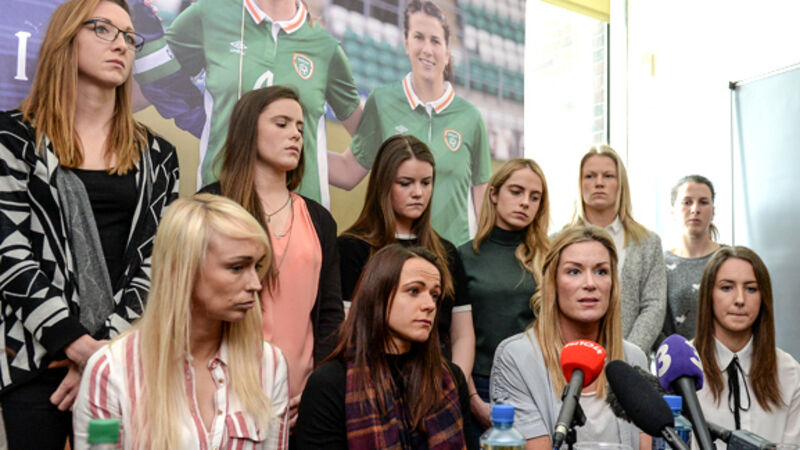‘A Roy Keane moment for the international women’s team’

Two years ago, she was a contender at Fifa’s Ballon d’Or gala in Zurich, mixing it with the likes of Messi and Ronaldo as her celebrated volley in the homely surroundings of Wexford’s Ferrycarrig Park was edged out for the prestigious Puskas Award – presented for the goal of the year - by a James Rodriguez strike at the World Cup finals in Brazil.
Yesterday, she found herself on a very different stage, joining 13 of her comrades from the Irish women’s senior squad at Liberty Hall in Dublin, as they made public long-simmering grievances with the FAI, including the absence of match fees and, for the part-time players, the lack of remuneration for loss of earnings. To a woman, they were eloquent advocates for their cause but their body language repeatedly told you that they’d rather be anywhere else than here: on the brink of taking strike action ahead of next Monday’s scheduled friendly against Slovakia, unless a resolution can be found.














